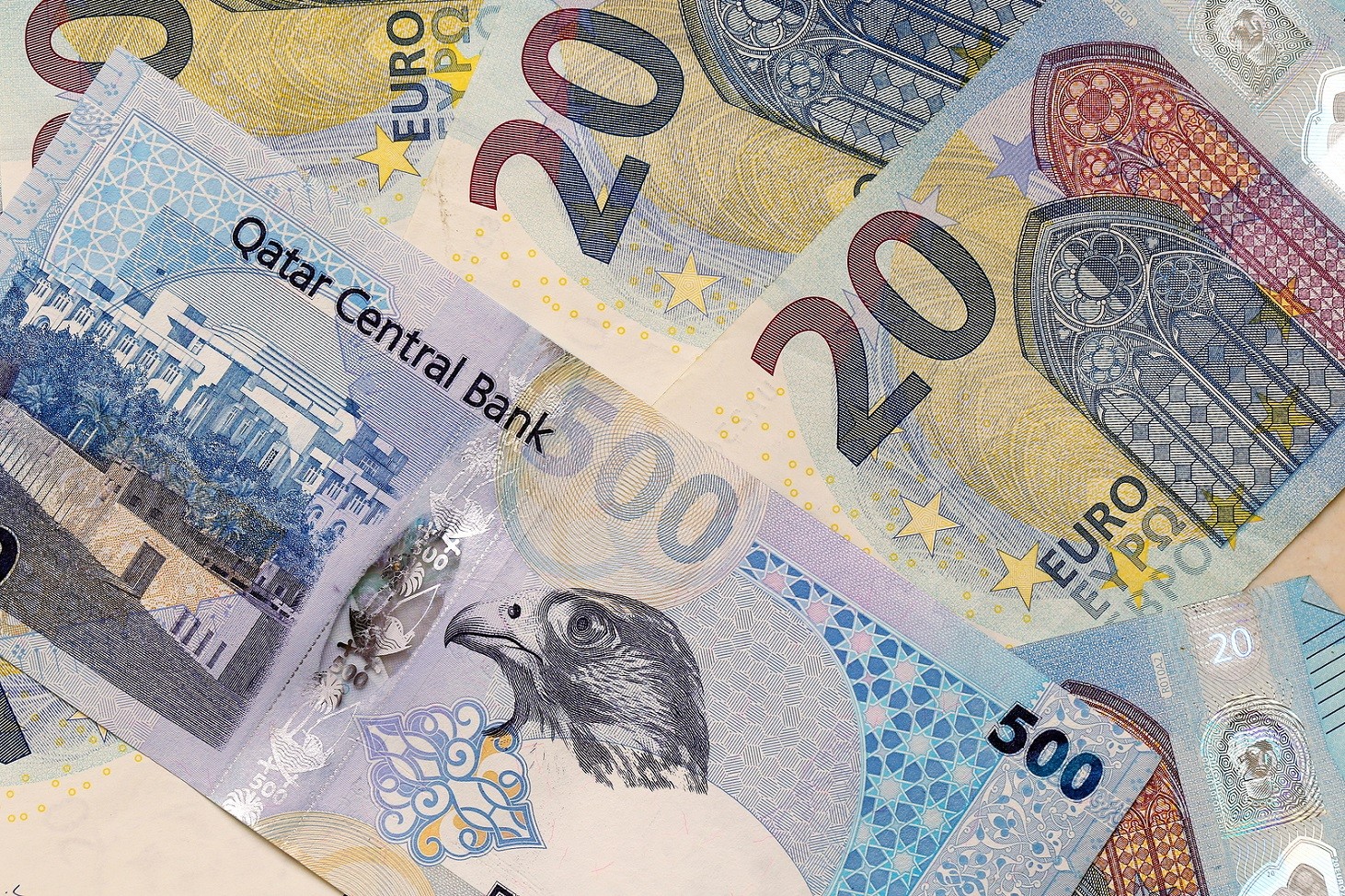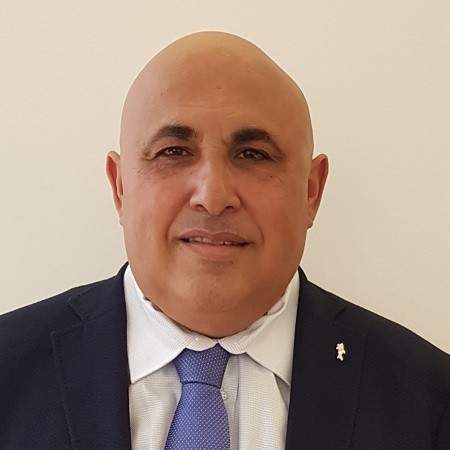What Happens When Hezbollah Seeks a Similar Arrangement of Quiet for Cash?
The issue of Qatari financing of the Gaza Strip and Hamas rule has returned to the news after it was revealed that the head of the Mossad and the chief of the IDF Southern Command had visited Qatar. Qatar has been sending exorbitant funds to the Gaza Strip for eight years, since 2012. According to various estimates, the total amount sent Hamas in Gaza amounts to $1 billion.
There is no dispute that without the Qatari financial aid, which serves as a lever of influence over Hamas leadership in Gaza, Israel might have faced either a humanitarian disaster in Gaza or been forced into massive military conflict with Hamas. Ever since the Palestinian Authority’s refusal (beginning March 2019) to make payments to the various apparatuses of life in Gaza, Hamas leadership and the Palestinian population in Gaza effectively have had no way to maintain even a basic lifestyle. Given that no real diplomatic agreement between Israel and Hamas is possible, Israel’s decisionmakers have attempted to reach arrangements between it and the terrorist entity ruling Gaza to ensure some quiet.
Nevertheless, the current policy is problematic since it is based on the generosity of Qatar, which in the past decade has served as the key financer of radical Islamist terrorist organizations, including Al-Qaeda, the Islamic State and Hamas. Through the financing it provides, Qatar has brought about the killing of more civilians than any other terrorist-supporting state, including Iran. Israeli decisionmakers should be cognizant of this fact, both regarding its strategic implications and in its moral dimension.
Israel was one of the first countries in the world to understand that denying sources of finance to terrorist organizations is a key tool in the war on terror. This understanding became a policy mainstay of prime ministers Ariel Sharon, Ehud Olmert and Benjamin Netanyahu. Israel applied this approach in the unprecedented economic campaign against Iran and its nuclear endeavors. For two decades, Israel also has waged an unrelenting war to drain the sources of finance of Hamas, the Islamic Jihad and Hezbollah. The campaign led to the closing of dozens of charitable associations worldwide, the arrest of dozens of couriers and financiers, the shutting down of financial channels, and a long list of clandestine operations carried out in global collaboration with others in the international arena.
The current Israeli policy of striving to reach an arrangement with Hamas, via an agreed cash flow from Qatar, transforms all this. It contradicts the efforts of the long-standing economic campaign against Hamas and against other Islamist terrorist organizations. It moves Israel from a policy of strategically impairing the organization’s financial capabilities to a policy of facilitating payments to Hamas as part of the effort to prevent attacks against Israel and preserve quiet on the Gaza border.
If this matter has indeed been considered by Israeli decisionmakers and it was decided that policy be dramatically changed, several historical facts should be considered. Israel is not the first country in the world to adopt a policy of payment of bribes in return for quiet from a terrorist organization. It was Saudi Arabia that, for over four decades, financed the infrastructures of the Muslim Brotherhood and the Sunni terrorist organizations around the world. The purpose was clear: Propagating Islam and placing Saudi Arabia at the head of the Islamic League, while obtaining an insurance policy that the kingdom would not be harmed, in return for billions of dollars that were injected into terror infrastructures and the dissemination of Islam worldwide. The outcome was deadly and destructive, since it turned radical Islam into the most substantial threat to the free world; and led to mega-terror attacks by Osama Bin Laden, who then also marked the Saudi kingdom as a key target. Bin Laden, the Saudi kingdom’s own creation, almost fomented a revolution in Saudi Arabia in 2003.
The US financed the the radical Islamist Taliban for years, as part of its campaign against the Soviet Union. Here too the outcome was terribly clear. Thousands of American soldiers and civilians were killed in Afghanistan in recent decades. The US has ben forced to spend trillions of dollars to counter the dangers of the Taliban, Al-Qaeda and later the Islamic State; all monsters that, as mentioned above, were first financed by the US or Saudi Arabia.
Israel too has made its share of mistakes made in this context. In the 1980s, Israel secretly supported the Muslim Brotherhood and the campaign it waged against the PLO, based on the Machiavellian maxim that “my enemy’s enemy is my friend. The result was the rise of Hamas. Israel arrived at a similar sad outcome in Lebanon, by showing quiet preference of the Shiites, in the form of Amal, over the Sunnis represented by the PLO; and this too led to a disastrous result – the emergence of Hezbollah.
But no less grave is the role Israel now assigns to Qatar versus Hamas in Gaza. Qatar has not been put on American and international blacklists, despite its unprecedented involvement in terrorist financing, because of this. Again, Qatar is neck-deep in financing most Islamist terrorist organizations worldwide, including those implicated in the worst terrorist attacks perpetrated in recent decades. It was involved in the 9/11 attacks; in terrorist attacks against the French in Mali; directly involved in financing the Islamic State in Syria; in Libya; in attacks in Egypt against the Coptic Church; and finally in terrorist attacks against Israeli civilians.
Direct terrorist financing has underhandedly been sent by the Qatari royal house, through the Qatari Charitable Association (an entity declared as a terrorist organization by Israel and the US), and through Qatari banking institutions. In recent years, Qatar also has been financing terrorist organizations by supposedly paying “ransom” to terrorist organizations for the release of Western hostages; whereas the amounts paid were a sophisticated way to finance terrorism while ostensibly portraying Qatar as a “righteous” nation.
However, unlike Iran, Qatar has for some reason been granted international immunity. Rare voices heard in the Gulf states and in the Arab world that unequivocally blame the Qataris for involvement in terrorist financing do not receive attention. This immunity arises from Qatar’s immense economic power and its wise investment policy over many years, by which it took over strategic institutions of the global economy, creating a dependency of the West on the small, energy-rich principality. The Qatari desire to be involved in financing Gaza and Hamas serves both edges of the sword. On the one hand, it continues financing of Islamist terrorist entities, and on the other hand it obtains international legitimacy and the continuation of its international immunity against its terrorist-supporting activities.
The Qataris ascribe high importance to obtaining legitimacy from Israel, and, no less important, from global Jewish organizations, as part of their two-faced policy. Since President Trump took office, the Qataris have invested immense efforts in developing ties to US Jewish organizations with the intent of turning them into lobbyists for Qatar in corridors of the US capital.
These days, a legal campaign waged by Syrian victims of terrorism is underway in England, who are blaming Qatari officials of financing the Islamic State during the war in Syria. This campaign has barely received media coverage because Qatar is threatening every possible entity in the UK not to publicize this matter. Libya’s and Syria’s intention of initiating an international action against Qatar for the devastation and destruction caused to those countries due to Qatar’s support of the Islamic State is also not being discussed by anyone.
Israel should reconsider the wisdom of its current approach to Qatar and the Gaza Strip. Will Israel, one of the main victims of radical Islamist terrorism, and which proclaims from every possible platform its commitment to the war on terror, be the country to legitimize one of the greatest financers of global terrorism?
Israel also needs to give serious consideration to the following additional question. What are the implications of the payments to Hamas on Israel’s confrontation with Hezbollah in Lebanon? The pressures on Hezbollah grow every day, from the US government and other actors. What if Hezbollah seeks a similar arrangement of quiet with Israel in exchange for cash? How would Israel respond then? Ask the Qataris to hush Hezbollah with money?
JISS Policy Papers are published through the generosity of the Greg Rosshandler Family.
photo: Bigstock



 - בניית אתרים
- בניית אתרים